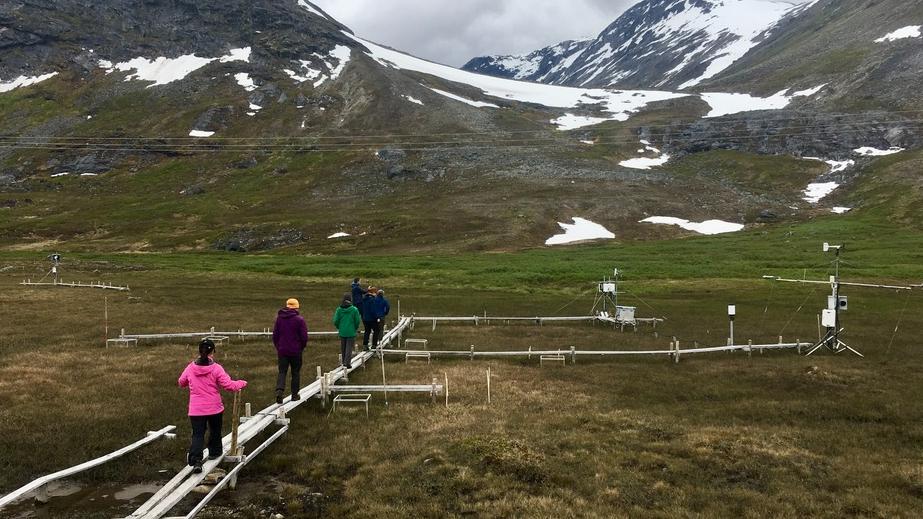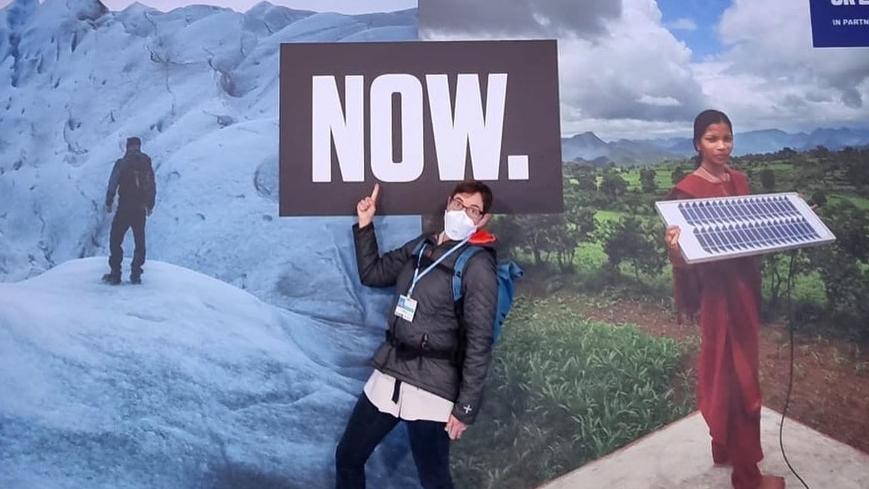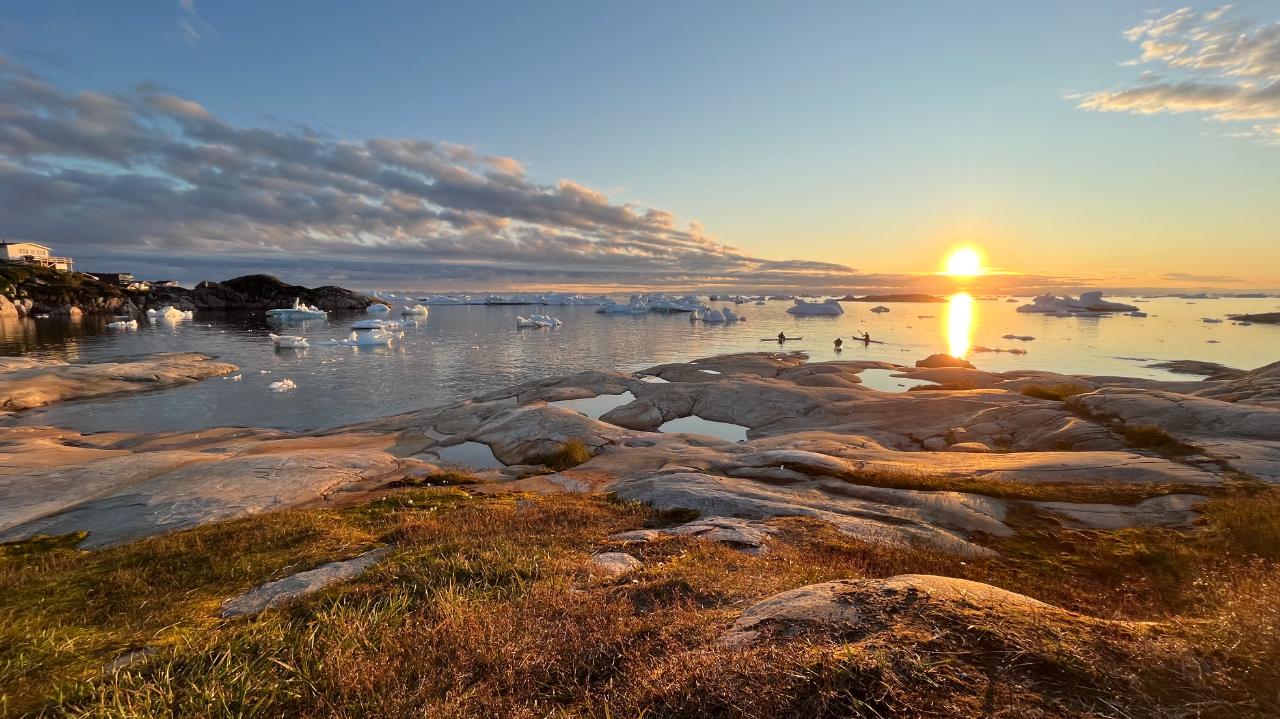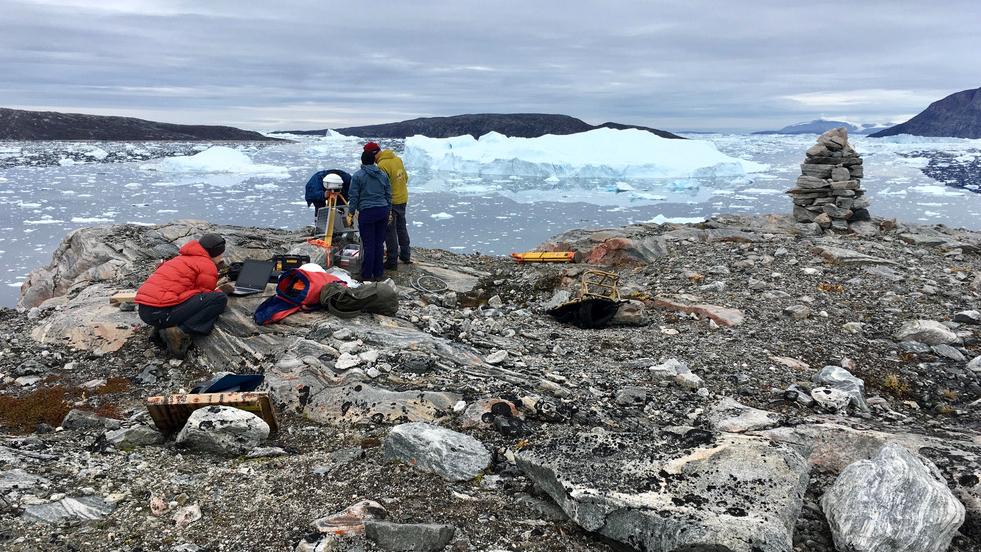Twila Moon
Research Scientist III, Deputy NSIDC Lead Scientist and CEEE Climate Science Engagement Lead
- Ph.D., University of Washington, 2014
- M.S., University of Washington, 2008
- B.S., Stanford University, 2004
Research Interests
Dr. Twila Moon is Deputy Lead Scientist and Science Communication Liaison at the National Snow and Ice Data Center, part of the University of Colorado Boulder’s Cooperative Institute for Research in Environmental Sciences (CIRES), a global leader in Earth science. Dr. Moon is a world-renowned scientist specializing in the connections across ice, climate, ocean, and ecosystem – and bringing climate science insights to decision makers and business leaders. Her discovery science focuses on the Greenland Ice Sheet and the Arctic. Her pioneering research has been published on the cover of high-impact journals such as Science and Nature, to which she has also contributed invited perspectives. Dr. Moon’s research has received extensive media coverage around the world, for example BBC, Associated Press, CTV Canada, CNN, and many more. An accomplished science communicator, she is a sought-after speaker and media contact, called upon to link the dots between climate science, societal impacts, and topics traditionally considered disconnected from climate. Dr. Moon has testified for the U.S. Congress; is a lead editor for the Arctic Report Card, NOAA’s highest impact annual report; serves on the U.S. National Academies Polar Research Board; and spearheads efforts to improve knowledge exchange amongst scientists and between researcher and stakeholder communities. She also specializes in bringing climate science knowledge to the business and philanthropy communities, assisting with the insights needed to motivate impactful business solutions that meet the urgency of the climate crisis. After completing degrees at Stanford (BS) and the University of Washington (MS, PhD), she received a CIRES Postdoctoral Fellowship for research at the University of Colorado, a US National Science Foundation Postdoctoral Fellowship for work at the University of Oregon, and held a Lecturer position at the University of Bristol (UK). She returned to the National Snow and Ice Data Center in 2017.
Current Research
Moon conducts a wide variety of research, including discovery science and geoscience education research, and is also involved in science community organization and collaboration initiatives. Current projects include:
QGreenland: QGreenland (https://qgreenland.org/) is a Greenland data viewing, mapping, and analysis tool. QGreenland provides a curated set of multidisciplinary geospatial data for the Greenland ice sheet and terrestrial and marine areas. The QGreenland package works on the free QGIS platform and comes with complete User Guide and supporting information, so even those new to GIS can explore. Moon is the project PI. Source of support: NSF
PolarPASS: The PolarPASS geoscience education research project aims to increase polar knowledge and interest amongst undergraduate students. The project achieves this in part by evaluating how use of a 360-degree interactive environment can increase student sense of place and spatial analysis skills. Moon is the project PI. Source of support: NSF
GRISO: The Greenland Ice Sheet Ocean Science Network (GRISO, https://griso.ucsd.edu/) goal is to facilitate scientific progress by bringing together the community and leveraging international collaborations between individuals, groups and networks. Current activities include facilitating the successful outcomes for five working groups (focuses: ice forcing ocean, ocean forcing ice, data, coastal ecosystems, and paleo) and launching a Greenland science summer school. Moon is a project Co-PI. Source of support: NSF
Greenland freshwater production: In collaboration with colleagues at Boise State University and San Jose State University, this project works to understand the location and timing of freshwater fluxes from Greenland, including iceberg melt. Moon is a project Co-PI. Source of support: NSF
Navigating the New Arctic Community Office: The NNA-CO (https://nna-co.org/) provides leadership and coordination to support use-inspired convergence research in the Arctic—collaborative research that deeply draws on information and expertise from across disciplines and knowledge systems to solve complex challenges. Moon is project Senior Personnel. Source of support: NSF
Research Categories
Climate and Weather, Cryosphere, OceansResearch Images
-
Invalid dateP.I.(s)
About CECA
CECA connects and creates a supportive environment for graduate students and postdocs who come from various academic units to do research in CIRES.



